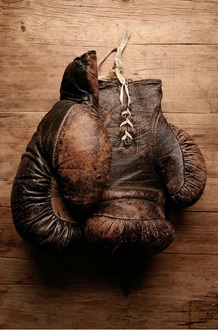 So they said, "Let us rise up and build." Then they set their hands to this good work. Nehemiah 2:17-18 Today we continue our study of what Proverbs calls “our most precious possession: diligence.” Diligence is more than hard work; it is hard work that rises from loyalty to a cause. It is a unique kind of commitment that surpasses one’s loyalty to serve their own private interests or personal convenience. Consider those who serve in the military, law enforcement or as first responders. Their vocation requires them to put their lives on the line in service to others. Every day they put the cause before themselves, their ambitions and even their families. Sociologists call it an institutional mindset. It’s a mentality that places the needs of the society, the group or the organization as a priority over one’s personal needs. First responders do it every day, faithfully and selflessly and as a result, we call them heroes—and they are. This is the essence of duty—it’s a loyalty to the cause. And those who share it, have a different mentality than most people today; especially those of us in civilian life. We don’t have an institutional mindset; we don’t have a primary commitment to a society or organization; our primary commitment is to ourselves. This is why most people, when faced with a certain level of sacrifice or self-denial, will find themselves asking, “Why am I doing this? What am I getting out of this?” As a result, their quality of work will diminish—as will their commitment—until they finally justify their lack of diligence and find an excuse to quit. By contrast, the man or woman of diligence will go on because they are driven by something deeper, they are driven by a sense of honor—an inner need to do what is right, not for themselves, but for the institution they serve. Nehemiah had this sense of duty. He had a mindset that elevated the needs of Israel above his own needs. He said, “See the distress that we are in, how Jerusalem lies waste, and its gates are burned with fire. Come and let us build the wall of Jerusalem, that we may no longer be a reproach.” It was a sense of duty: a commitment to a cause greater than himself. Too often we hear preachers, motivational gurus and university commencement speakers tell their audiences: “Find your passion. Look inside to see what you love. Know what your passion is and make your life about that.” That is really bad advice—unless we’re building a nation of narcissists whose primary concern is “What makes me happy?” People of character do not look inside for a passion, they look outside at the world and see what problems need solving and make their lives about that. They ask, “What are the world’s greatest needs and how can my abilities and aptitudes meet those needs?” Their passion, their duty is not determined by what life can give to them, it’s determined by what is life is calling them to do. Though they exist, diligent people are becoming harder to find. Most people commit to a task only to the level of their own comfort and self-interest. They have little tolerance for duty—especially the kind of duty that requires them to deny personal needs and preferences. Paradoxically, this is also why diligence is the great distinguisher. Nothing gives you more distinction and differentiates you from the crowd like diligence. Like no other virtue, diligence is a launch pad for promotion. In fact, one cannot rise to the “next level” without it. This is why Proverbs 22:29 tells us diligence causes one to stand before kings and not unknown men. Those who are building great organizations understand the value of duty and diligence and they will regard those with such character among their most valued assets. Check back next week for further discussion on diligence. Or, check out my newest book, Upward: Taking Your Life to the Next Level.  Then the king said to me, "What do you request?" So I prayed to the God of heaven. And I said to the king, "If it pleases the king, and if your servant has found favor in your sight, I ask that you send me to Judah, to the city of my fathers' tombs, that I may rebuild it." Nehemiah 2:1-5 Last week we began a look at our most precious possession: diligence. For an example, we turn to Nehemiah whose diligence propelled him to greatness. Originally, he was a cupbearer to the king. It was a great job, taste-testing the king’s delicacies, not only to ensure their worthiness of the king’s noble palette, but also to protect the king from poisonous assassination attempts. But despite his comfy job, he could not escape the burden he had for his homeland. Jerusalem had never recovered from the Babylonian invasion almost a century before. What was left of the city remained in ruins and his beloved people were prey to their surrounding enemies. Rather than turn a deaf ear and say, “It’s not my job.” Nehemiah took responsibility and like David would cry “Is there not a cause?” He felt a burden to take action, to get involved, to do something. And if he did not, he would convict himself with personal shame for having done nothing. This is the birthing room of diligence—a sense of responsibility. Responsibility is taking ownership of expectations and demands that are assigned, assumed or imposed upon us and morally obligating ourselves to the consequences of whether or not we have fulfilled those demands. The diligent person accepts the burden of “doing what he can,” not because he is being paid or because he will suffer if he doesn’t, but simply because it is his moral obligation to so. This is what drives diligence. It is a continuous awareness that “it is up to me to make a difference and if I don’t act, part of the blame must fall to me.” Hence, the diligent take initiative; they are self-starters and hard workers. They are not dependent on someone else’s motivation; they are motivated by a self-imposed ethical obligation. Check back next week for further discussion diligence and the example of Nehemiah. Or, check out my newest book, Upward: Taking Your Life to the Next Level.  What would you say is your most valuable, personal asset? Which of your great qualities do you believe can take you to the “next level?” Perhaps it’s a physical feature that enhances your appearance or a special talent that makes you shine. Or, maybe it’s an ability to relate well to people or a charming, charismatic flare. While each of these may be important qualities, there is one virtue that outranks them all: diligence. Its what scripture calls a “man’s precious possession.” The Hebrew word is “mâhı̂yr.” It means to move quickly and do your best; to act with skillful haste. Diligence is about effort. It is about quality of work. Our English word for “diligence” is derived from the Latin “industria” which means to be steadfast in one’s labors. Despite obstacles and difficulty, no matter what stands in their way, people with diligence will work tirelessly to achieve their goals and stay committed to the task regardless of cost or discomfort. Obviously, gifting and skills are important. Proverbs 18:16 says “a man’s gift makes room for him, and brings him before great men.” It’s true, if you have a special gift, there’s often a place for you. If you can sing, someone will offer you a microphone. If you can preach, we’ll give you a pulpit. Perhaps you can administrate or lead, you’ll find a title and be put to work. But while a man’s gift may result in quick promotion or applause, such recognition will be short lived without the one, all-important quality of diligence. Your talent may get you in the “room” but it’s diligence that will keep you there. Proverbs 12:25 says the hand of the diligent will rule. In other words, diligence is what takes a person to the next level. Every story of sustainable success involves a narrative of diligence. Perhaps one of the greatest examples is Nehemiah and the rebuilding of the wall of Jerusalem. From his account we discover several truths about next level living and the qualities of diligence that propel us higher. Check back next week for further discussion diligence and the example of Nehemiah. Or, check out my newest book, Upward: Taking Your Life to the Next Level.  Opportunity doesn’t just happen. It happens because it is provoked by excellence. Opportunities come to us because they are attracted by the quality of our lives, our work and our character. Over the last two weeks I explained that excellence is the discipline of consistently performing towards the upper range of your talent and skill beyond accepted levels of mediocrity. From this truth, we understand three things about excellence: it is a discipline, it is consistency and it is to excel above mediocrity. Last week I explained excellence is “consistency.” This week, we discover that it is much more. Excellence is consistent performance beyond accepted levels of mediocrity. It refuses to settle for ordinary, even when ordinary is the prevailing mindset of the people around us. There will always be earth-bound chickens who try to discourage the eagles from flying. Friends that don't help you climb will want you to crawl. This is what average mediocre people do; they try to increase their own sense of worth by diminishing the worth of others. They resent those who excel because it exposes their own lack of excellence. This is why eagles—if they are going to soar—can’t fly with chickens. At some point your pursuit of excellence will require you to dissociate with certain people—especially people who believe mediocre is “good enough.” Colin Powell, retired four-star General and US Secretary of State is quoted as saying, “The less you associate with some people, the more your life will improve. It’s a simple but true fact of life; we become like those with whom we most closely associate, for the good and the bad. Any time you tolerate mediocrity in others, it increases your mediocrity. An important discipline of successful people is discretion in their choice of associates. They don’t surround themselves with people that simply make them feel good by affirming their status quo. They surround themselves with possibility thinkers—people that challenge them. If you are serious about the next level, stop associating with people who are aiding and abetting your mediocrity. Yes, we need encouragement when we fail; yes, we need friends who will inspire us to get up when we are down. But true inspiration and encouragement should never make an eagle feel content about living in a chicken coop, it should challenge him to see his own potential and God-given abilities. It should inspire him to get up and try again, to do better, to flap his wings harder, to fly longer, to expect more from himself until he achieves what God has created him to do. For more about excellence and the opportunities it provokes, check out my new book, Upward: Taking Your Life to the Next Level at the links on this page.  Last week I wrote: “Opportunity doesn’t just happen. It happens because it is provoked by excellence. It is the quality of our lives demonstrated by our work, our character and our attitude that brings a favorable opinion from others which incites them to offer us opportunities.” What is excellence? It is the discipline of consistently performing towards the upper range of your talent and skill beyond accepted levels of mediocrity. From this truth, we understand three things about excellence: it is a discipline, it is consistency and it is to excel above mediocrity. Last week I explained excellence as a “discipline.” This week, we discover that excellence is “consistency.” Excellence is to consistently perform towards the upper range of your talent and skill. In other words, excellence pushes your limits; it stretches you. It forces you to do and be better. This is not to suggest that excellence requires perfection. Rather, excellence is about giving your best. Perfection, on the other hand, is about being flawless, it’s about delivering a faultless, perfect product. Excellence isn’t about the product, it’s about the performance. It’s not about winning, it’s about giving your absolute, best effort—performing towards the upper range of your skill. The reality is, one can play his or her best game, they can give their best effort, but still not have the best score; in fact, they could lose. So, excellence is not about first place, second place or even third place. Excellence is about work ethic. More important, it’s about consistent work ethic. Anyone can do their best once in a while, especially when someone is watching them. But true excellence is what happens in the dark, when there’s no spotlight and no one is watching. It is a sense of responsibility that obligates you to offer your absolute best effort in every situation regardless of who is watching, how much you are being paid or who is going to know about it. Excellence says, “It is up to me to put forth an effort that makes a difference, and if I do not perform at my absolute best, then I am responsible for the failure that results.” Check back next week for the third quality of excellence. Or, check out my new book, Upward: Taking Your Life to the Next Level now available on Kindle. |
Archives
February 2023
Categories
All
It was concerning King Saul that David said, “How the mighty have fallen, and the weapons of war perished.” His was a life that began with great promise and celebration, but ended in miserable failure and humiliation. His life is an example of how the mightiest of leaders fail.
Why do great men and women fall? How do leaders, quick to ascend with such promise of unparalleled success, find themselves awash in disastrous failure and disgrace? More importantly, can the path toward one’s downfall be discerned before it’s too late and be avoided? It is the premise of my newest book, How The Mighty Have Fallen that such a decline can be detected and reversed. The life and leadership career of King Saul, Israel's first king, provides us with a treasury of examples of "what not to do." The below blog post is the first in series of excerpts from the book to examine and avoid Saul's mistakes and find a successful path through leadership. READ AN EXCERPT |
all content on this website is ©GreggTJohnson

 RSS Feed
RSS Feed